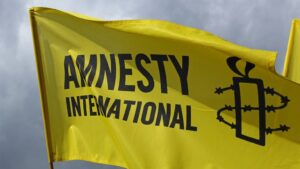Nigerians continue to deal with rising fuel prices, but a financial expert has shared some insight into what’s really causing the high cost and what can be done about it.
Kalu Aja, a well-known financial educator, recently posted on X (formerly Twitter) that the average price of petrol in Nigeria is about ₦1027.75 per litre. He explained that this high price is not just about local issues — it’s deeply tied to the exchange rate of the naira to the US dollar.
Aja noted that even if Nigeria starts refining all its petrol locally, the price still won’t drop much. Why? Because crude oil — the main raw material used to produce petrol — is priced in dollars, not naira. So as long as the naira remains weak against the dollar, petrol will stay expensive.
He jokingly suggested that Nigerians should pray for two things: peace in the Middle East (a major oil-producing region) and for the US Federal Reserve to reduce its interest rates. If interest rates in the US fall, the dollar may lose some strength, which could benefit countries like Nigeria that rely heavily on dollar-priced imports.
According to Aja, Nigeria has removed the fuel subsidy where the government paid for petrol imports while owning refineries that didn’t work. Although this move has saved money, it has also exposed the country to the full force of dollar-based pricing.
So what’s the solution?
Aja believes the way forward is for Nigeria to export more oil byproducts — not just crude oil. Things like diesel, aviation fuel, and petrochemicals bring in more value per barrel. The extra income from these exports could then be used to support local industries through targeted subsidies, which may help reduce the overall cost of doing business in the country.
In his words, “Economics does not give answers; it provides options.” There’s no perfect fix, but with smart policies and better use of Nigeria’s resources, the cost of petrol — and other goods — could come down in the long run.







